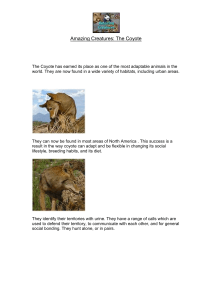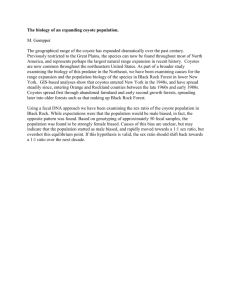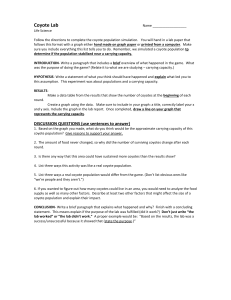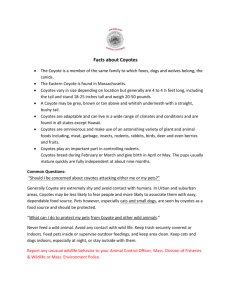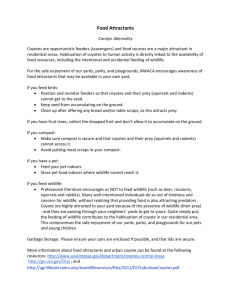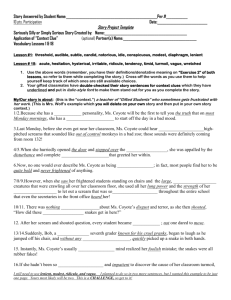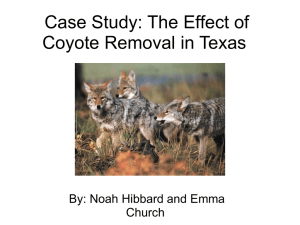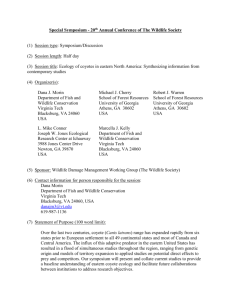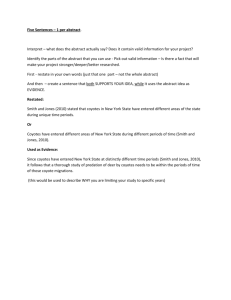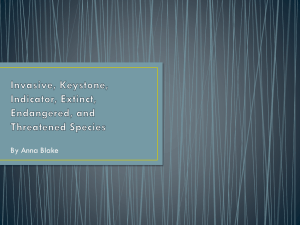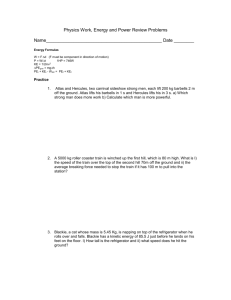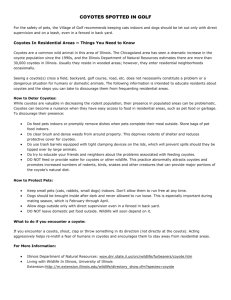Coyotes are Coming - Long Island Nature Organization
advertisement
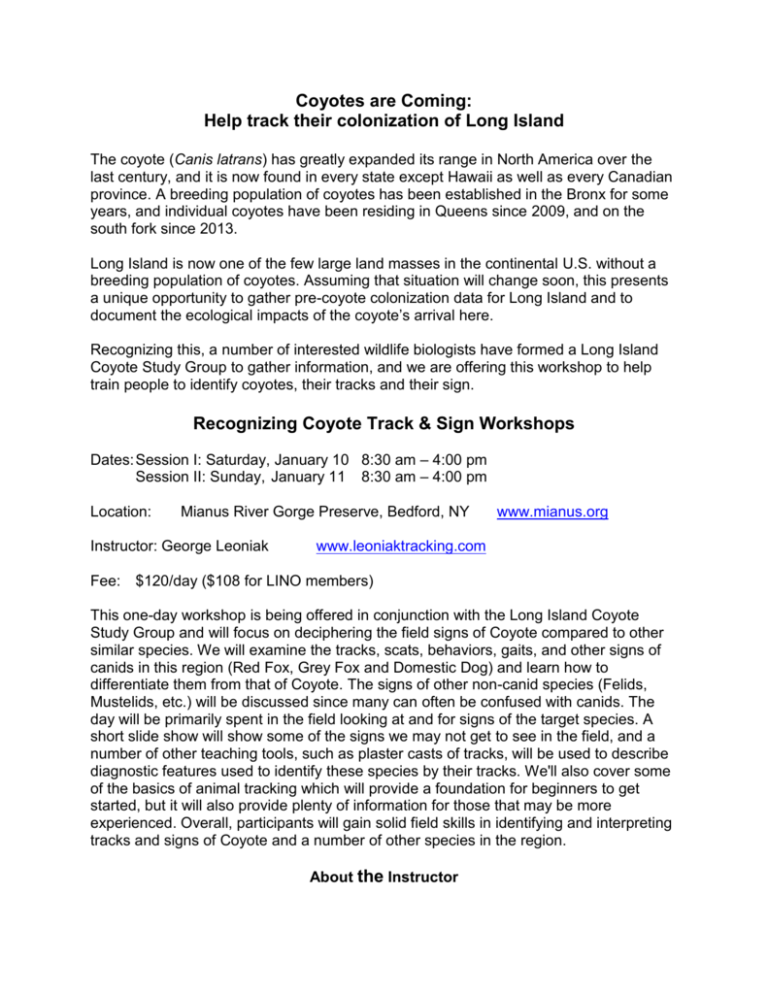
Coyotes are Coming: Help track their colonization of Long Island The coyote (Canis latrans) has greatly expanded its range in North America over the last century, and it is now found in every state except Hawaii as well as every Canadian province. A breeding population of coyotes has been established in the Bronx for some years, and individual coyotes have been residing in Queens since 2009, and on the south fork since 2013. Long Island is now one of the few large land masses in the continental U.S. without a breeding population of coyotes. Assuming that situation will change soon, this presents a unique opportunity to gather pre-coyote colonization data for Long Island and to document the ecological impacts of the coyote’s arrival here. Recognizing this, a number of interested wildlife biologists have formed a Long Island Coyote Study Group to gather information, and we are offering this workshop to help train people to identify coyotes, their tracks and their sign. Recognizing Coyote Track & Sign Workshops Dates: Session I: Saturday, January 10 8:30 am – 4:00 pm Session II: Sunday, January 11 8:30 am – 4:00 pm Location: Mianus River Gorge Preserve, Bedford, NY Instructor: George Leoniak www.mianus.org www.leoniaktracking.com Fee: $120/day ($108 for LINO members) This one-day workshop is being offered in conjunction with the Long Island Coyote Study Group and will focus on deciphering the field signs of Coyote compared to other similar species. We will examine the tracks, scats, behaviors, gaits, and other signs of canids in this region (Red Fox, Grey Fox and Domestic Dog) and learn how to differentiate them from that of Coyote. The signs of other non-canid species (Felids, Mustelids, etc.) will be discussed since many can often be confused with canids. The day will be primarily spent in the field looking at and for signs of the target species. A short slide show will show some of the signs we may not get to see in the field, and a number of other teaching tools, such as plaster casts of tracks, will be used to describe diagnostic features used to identify these species by their tracks. We'll also cover some of the basics of animal tracking which will provide a foundation for beginners to get started, but it will also provide plenty of information for those that may be more experienced. Overall, participants will gain solid field skills in identifying and interpreting tracks and signs of Coyote and a number of other species in the region. About the Instructor George Leoniak is one of only six certified track and sign evaluators in North America affiliated with CyberTracker Conservation, a globally recognized non-profit that established the international standard for assessing wildlife tracking and sign skills. He has evaluated hundreds of wildlife resource managers, field biologists and educators in locations throughout the U.S., Canada and Europe, and has taught Field Mammalogy at the Antioch/New England Graduate School in Keene, N.H. In the spring of 2014, George was invited by LINO to offer the CyberTracker Reading Wildlife Track & Sign evaluation workshop on Long Island. This year, over fifty people have taken his popular field course, including staff from The Nature Conservancy, Quogue Wildlife Refuge, Group for the East End, Ross School, Nassau Community College, Hofstra University, East Hampton and Southampton Natural Resource Departments, and other Long Island-based conservation organizations. The May course was highlighted in an article in Newsday.
